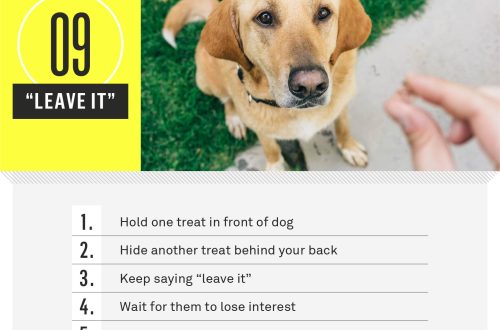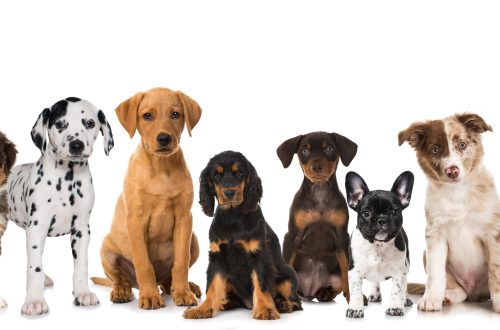
7 questions before getting a dog
Contents
- Question 1: Is there a place in the apartment?
- Question 2: Is there a budget for maintenance?
- Question 3: Do you have the time and desire to walk the dog?
- Question 4: Are there animal allergies and cumulative allergies?
- Question 5: Where and to whom to leave the dog when going on vacation?
- Question 6: The agony of choice. Why do you need a dog?
- Question 7: Psychological and physical compatibility?
Question 1: Is there a place in the apartment?
First of all, you need to correlate the size of the dog, the size of the living space and the number of people living. For example, if you want to keep a dog in a one-room apartment, then you need to understand that this is an active dog that needs a lot of movement. Be sure to think about where the dog will have its place, how it will behave in the kitchen, in the bathroom, in the hallway, whether there will be enough space for it. Your pet’s living space should match yours. The dog must be able to move freely around the apartment.
Question 2: Is there a budget for maintenance?
The dog needs to be fed rationally, not overfeeding, but not starving. Dry food for large breeds usually costs 2-3 or even 5 times more than food for small breeds. At the same time, do not forget about the supplements and vitamins that both puppies and adult animals need. In addition, all dogs need to be given natural meat, fish, cottage cheese in addition to dry food. The budget also needs to include regular veterinary services: this includes annual vaccinations, an examination by a veterinarian, and the purchase of anthelmintic and antiparasitic drugs. In addition to all this, the pet needs a “dowry”. Be sure to purchase a bed so that the dog has its own place, bowls for food and water, ammunition (collar, leash or tape measure), as well as various toys. While the puppy is in quarantine, in no case should you use any items brought from the street, as you can bring viruses and bacteria with them. Do not give puppies as toys plastic bottles that they can chew on and even eat. This is fraught with intestinal obstruction. Therefore, do not be stingy and buy at least 4 – 5 different toys at the pet store. You also need to consider that small breeds of dogs need additional insulation and protection of their paws in the cold season, so you need to buy overalls or a jacket, as well as boots so that the reagents do not corrode the pads paws.
Question 3: Do you have the time and desire to walk the dog?
A walk for dogs is not only an opportunity to fulfill their natural needs, but also a vital time for socialization. During the walk, the dog gets to know other animals, the surrounding space, people around. A small puppy learns the world in this way, so it is not enough to take the pet out for 5-10 minutes to the toilet. Weigh your options, be sure to set aside time for long walks so that your dog develops physically, emotionally and psychologically. Your motivation should be: “I bought myself a dog, I want it to be healthy, cheerful, active, lively, socially adapted, so I will find time for it.” The puppy should not be left alone for a long time and should be accustomed to the regime: walking-feeding-walking-feeding.
Question 4: Are there animal allergies and cumulative allergies?
Future dog owners can take an allergy test to play it safe. If there are children in the family, it is also recommended to check them. Most often, the allergen is not the wool itself, but the secret secreted by various glands. It can be saliva, sulfur, dandruff and other fluids. Remember that hypoallergenic breeds do not exist! If, as a result of the analysis, you find out that you are allergic to wool, you can choose a breed in which the wool has a hair structure and does not cause allergies, for example, a poodle. There is also such a thing as cumulative allergy. It manifests itself several weeks and even months after you have got a pet. Therefore, before buying a puppy, check if you are allergic and if so, to what. Then, when choosing a pet, you can protect yourself as much as possible from the unpleasant consequences of keeping it.
Question 5: Where and to whom to leave the dog when going on vacation?
Often, when buying a dog, we do not think about who she will stay with when we leave. And if a small dog can be left with relatives or friends, then problems can arise with a large one. Remember that we are responsible for our pet. When leaving him with other people, make sure that the dog is well brought up, that he will not harm anyone, will not ruin the apartment, will not scare. . In addition, remember that you must provide overexposure with food, as well as leave money for emergencies (going to the veterinarian, treatment, buying medicines, etc.). Also, be sure to warn about the nature and gender characteristics of your dog, for example, so that the bitch’s estrus does not scare the temporary owners, and they manage to protect the animal from unwanted sexual contacts. Be sure to think about who you can trust your pet if you get sick, leave, and also , whether you can pay for the services of a visiting service if your dog suddenly becomes ill and needs special care, or if your job does not allow you to walk the animal enough times a day. Only if the previous questions are resolved, move on to the next two.
Question 6: The agony of choice. Why do you need a dog?
You can get a dog to guard you and your family, to be your companion and accompany you on trips around the city, to go hunting with you, on long hikes, to be a nanny for your children, etc. First of all, pay attention to the function that the dog will perform in the family, what you want from him, what he should do in the house.
Question 7: Psychological and physical compatibility?
When choosing a dog by size, be guided by how comfortable you will be psychologically with the animal. Many people are instinctively afraid of large dogs, so they get medium or small breeds. Others feel safe and secure only with a large dog. Also remember that any dog can smell. Depending on the breed, the smell can be either very obvious or almost imperceptible. The sound range of all breeds is different: some dogs do not bark, but whine and howl, others bark very loudly and often, others make unusual sounds such as rumbling, and others do they are silent most of the time, but they can scare you with a sudden, very low and loud bark. When choosing a dog, it is advisable to listen to how it barks and what sounds it makes in general – you will be near the animal all the time. If barking annoys you, if it gives you a headache or even stuffs your ears, then it is better to give preference to more silent breeds.





